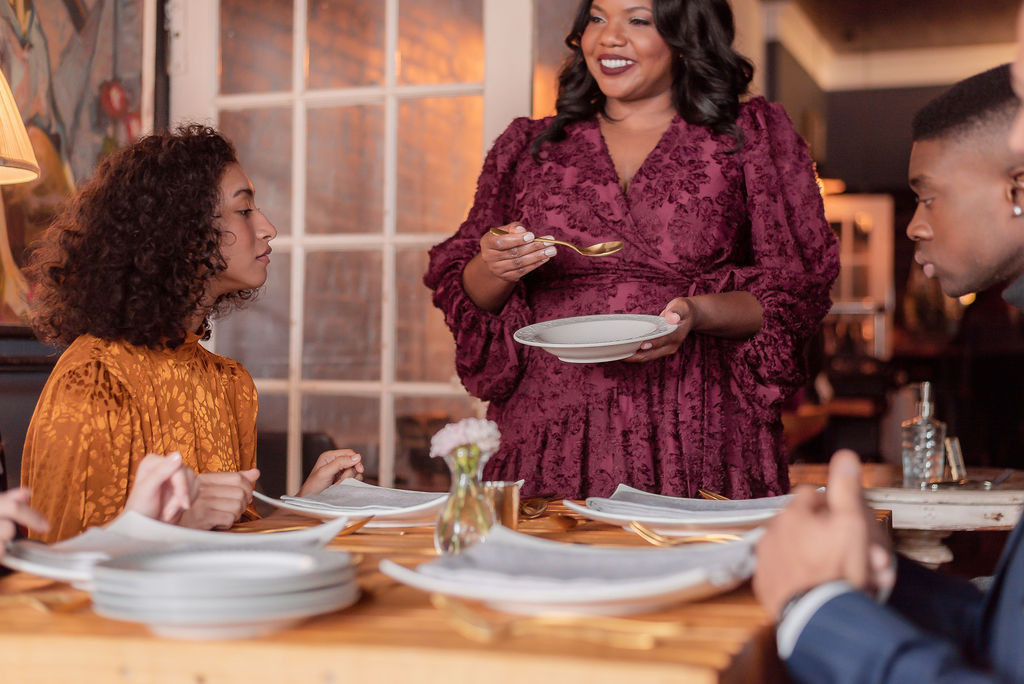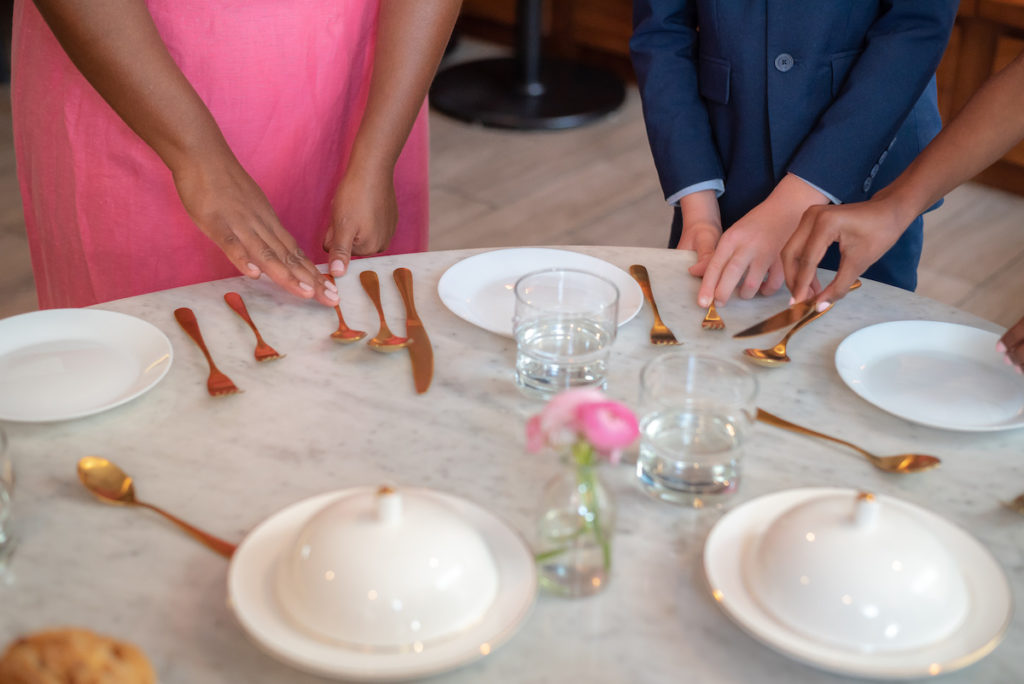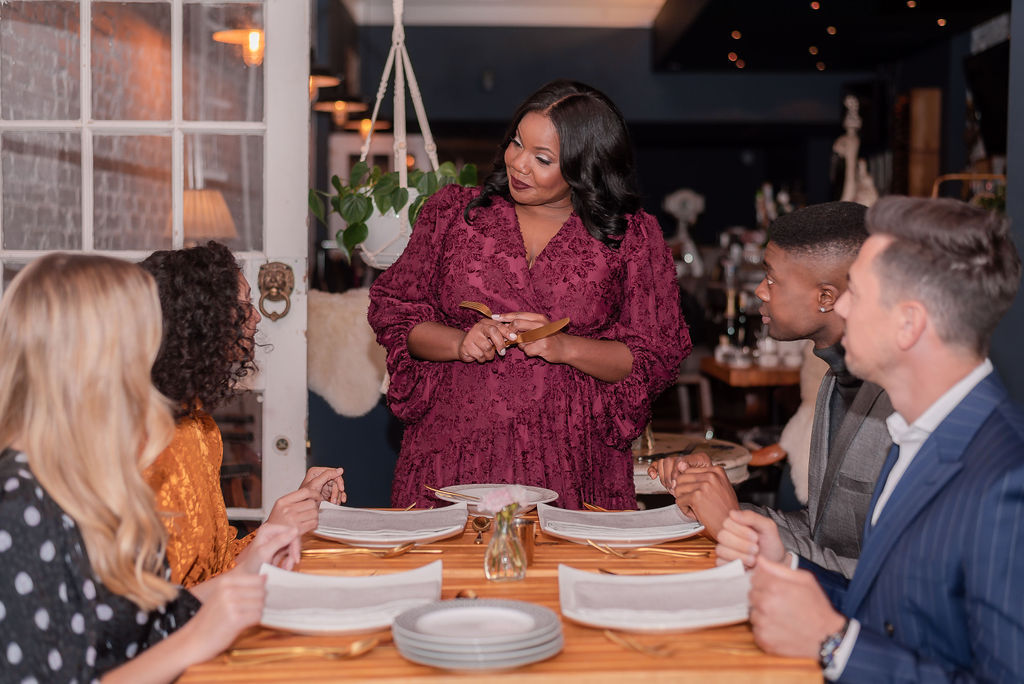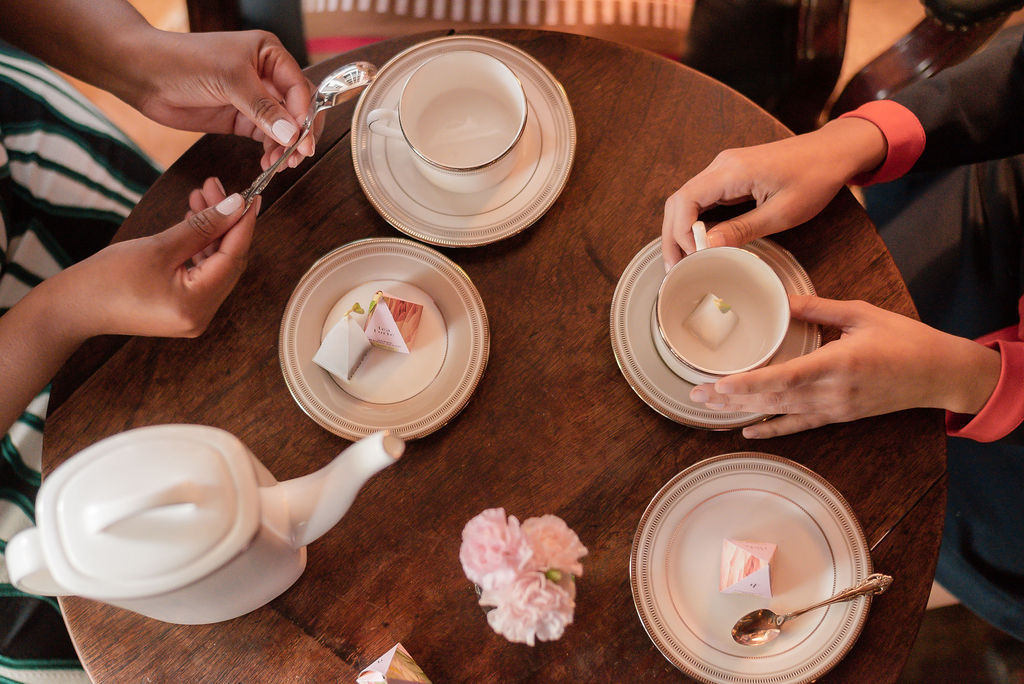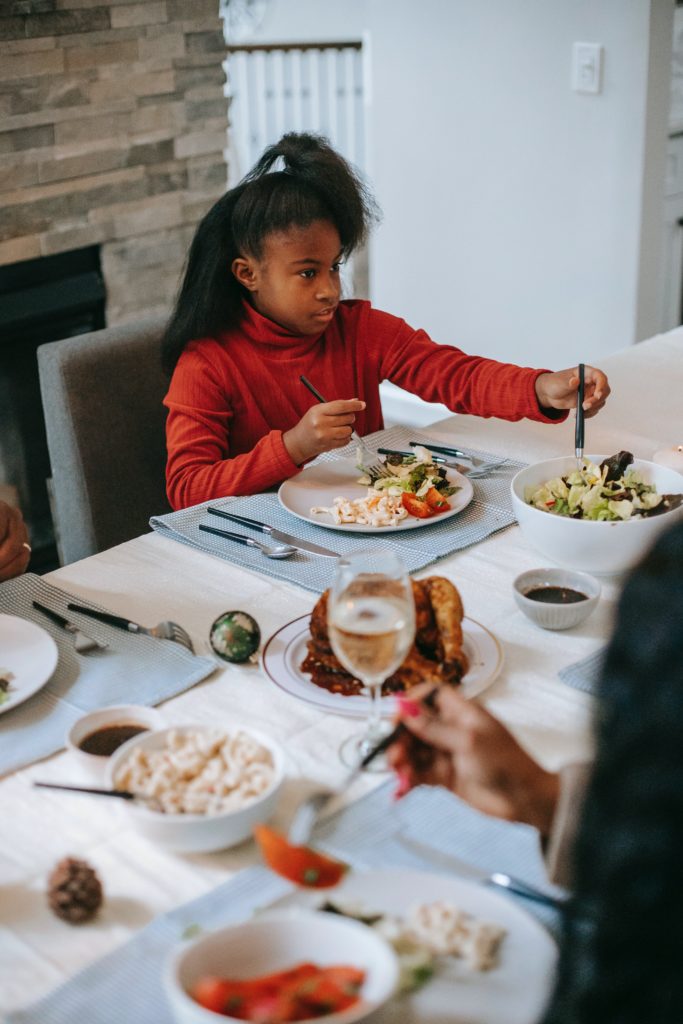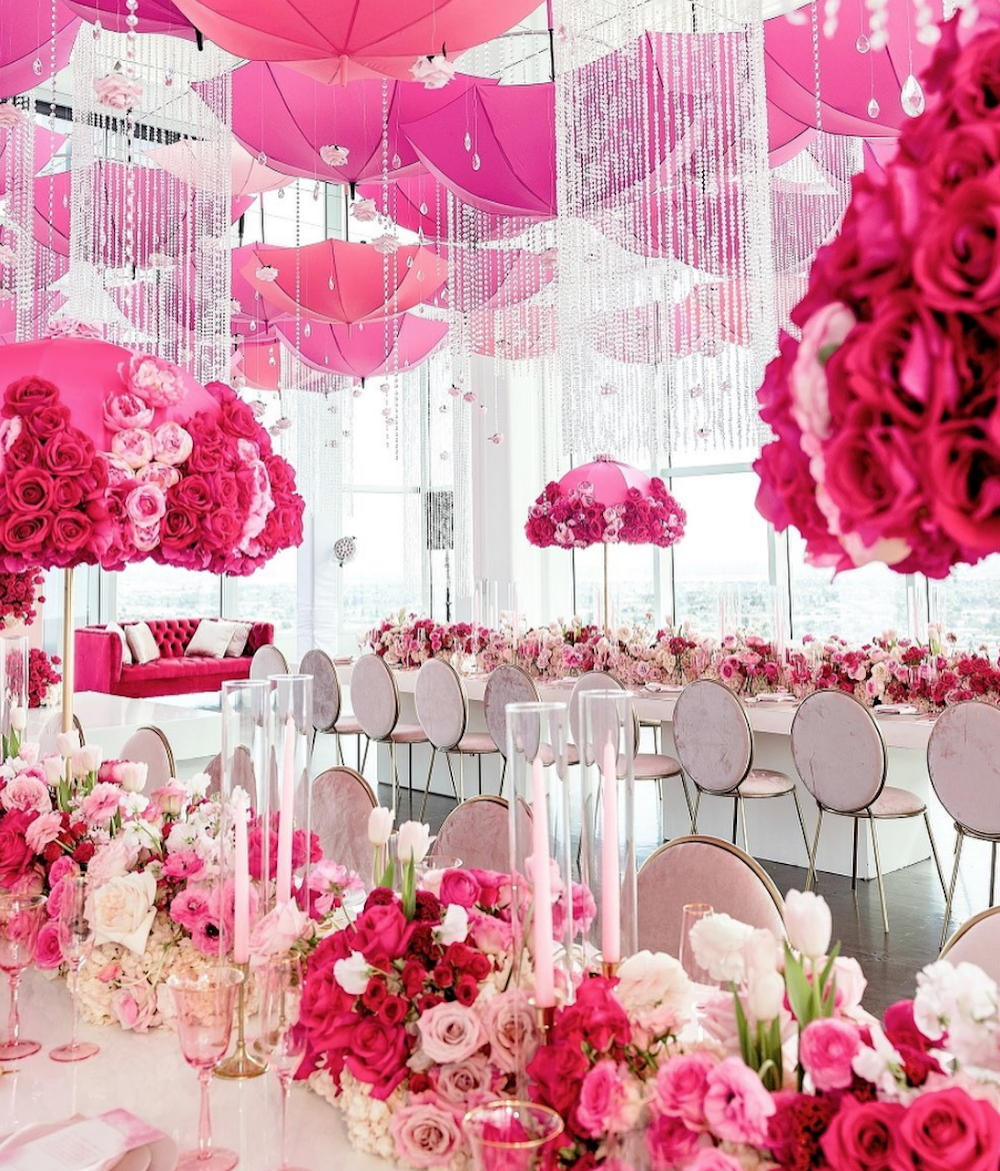If the art of etiquette, social graces, and just taste, in general, seem to be perilously close to being totally forgotten in today’s fast-casual society, Crystal L. Bailey is the one making strides to ensure the art of good behavior gets passed down to another generation.
Marie Deborah Smith and The Etiquette Institute of Washington Director, Crystal L. Bailey, sat down for an in-depth conversation about how families can work together to discover how etiquette is still relevant for everyone today.
This interview has been edited for clarity.
We have a wonderful guest with us today here at MunaMommy Magazine. She is the Director of The Etiquette Institute of Washington- Crystal L. Bailey. Crystal, thank you so much for joining us here today. For you, why is etiquette just so important? Why are you so passionate about etiquette?
This is my 10th year teaching etiquette, so I’m very excited to share that with you. But over the 10 years, my excitement and my energy has not waned a single bit, and that’s because etiquette is something that is evolving and changing.
We saw with the pandemic that a handshake, something that you would never have before the pandemic said that I would not shake someone’s hand or turned down a handshake. And then we were at this point of deciding whether or not we’re shaking hands and how to greet people and interact. That’s very much an important part, our first impression of etiquette.
And so that was something that changed a little bit and evolved. And so I will say that for me, the great part about etiquette and why I’m so passionate about it, is because it doesn’t get stale. A lot of people will hear the term etiquette and think it’s something that’s very stuffy, but for me it’s relevant and it’s evolving and changing with the times.
That’s an interesting point. I know a lot of us have heard about finishing schools and that kind of seems like something of the past. But for you, do you think that finishing schools are relevant? Obviously, you are the Director of the Etiquette School of Washington, but just in general, how relevant do you feel finishing schools are in 2022?
Sure. Of course there are very few true finishing schools still around, such as sending someone off for months to a Swiss finishing school or even somewhere in the Northeast here in the US. However, I offer a program that is a finishing program and I still find that it’s relevant as well for our young ladies, and it’s because it’s changed over time.
So while I will of course teach how to sit nice and prim and proper, which is fantastic if you’re sipping tea on a wraparound porch in the South, I realized that my young ladies are going to be girl bosses. They are going to be leading meetings and teams and organizations, and so we talk a lot about power positions. And so it’s understanding how to have both sides. To enjoy your femininity, but also to be able to have a powerful presence within the spaces that we move in.
That’s really interesting. You do mention something on the website, you say there is the art of good behavior. I felt like that brought back to my mind André Leon Talley, he did an interview before, unfortunately, he passed recently. And he said something, he said, “Dressing well was a moral code. For me that resonated so hard within my soul. And I think a lot of people, that resonates as well. For you, why is etiquette the art of good behavior? How is it an art?
I want to start off just thinking a little bit about the André Leon Talley quote. If we can think back to, there were times in the US where there were laws in the South where African Americans were not allowed to dress above their station. And there has then been a real thing about respectability and the way that we present ourselves that I appreciate, because a lot of it is just good home training. Things that we have maybe learned and have been passed down from our families in order to have just self-pride, pride within ourselves.
And young people now feel as if you are trying to assimilate and feel as if, “Well, why should we follow these certain rules and dress codes and things like that.” But a lot of it is just about self-pride. I mean, we think even about the CROWN Act. Wearing our hair as we wish, I fully and wholly support. That’s what I teach and I talk to my young people about, but it’s also about being kempt and having ourselves together. So however, you decide to wear your hair, you’re doing it in a polished fashion. Something that shows that you put time and effort and pride into what you do, and so that’s what I’m teaching our young people today.
But back to the piece about the art of good behavior, that’s been our tagline. And I think about it like dance or any other art form, theater. And that you rehearse, rehearse, rehearse, and you obtain these skills and you work on them, maybe in the home and that’s when grandma passed these things down to you. So that when you do step out you’re not thinking about them. I never want one of my clients to go into a job interview or go to a dinner and have to think about what fork. It’s something that they’ve practiced that’s almost within their body, just like a dancer would’ve rehearsed. And then now they’re performing on stage, so they’re enjoying their art.
Wow, I love that analogy. Just that graceful, artful … Just like a dancer. Now you did say something, you just talked about the new generation. I know there’s a lot of millennial parents now whose children are getting older. What would you say to them? Because I feel like millennials were kind of that last generation who wore party dresses when they were kids in the ’90s, and they were just raised by parents who grew up in the ’60s and ’70s and there was still that level of formality that they tried to pass down. But as far as a millennial parent, why should they enroll their children into an etiquette class? Especially now, people want to be new and different and on-trend, and that might not be something that they think is on-trend. Why should they do that?
As you mentioned that I think about Motown and that all of the Motown artists were super polished. Of course, they received training in etiquette and polished how to present themselves, which is really important. And then nowadays our artists, we look for them to stun us a little bit and to not be as polished. And that is what is on-trend. So it is a little more difficult because what is celebrated in our society now is not that polished look that we would’ve seen back in the ’50s and ’60s.
But for me, I implore parents because otherwise they’re going to be calling me years from now, their children, saying, “Hey, I’m 30,” or, “I’m 25 and I’m interviewing for my first job. And I’m not sure I know how to present myself,” because those are the emails that I get. The contacts that I get nowadays are millennials or Generation Z clients who did not have that training, and now they want it because they’re stepping into these spaces and they really need it. So that’s why I think it’s so important. It will prepare our young people for the future and for their professional lives.
I love, love, love how you brought up the Motown charm school. When I discovered that they even had a charm school, I just fell in love, I think it was so important to groom young African Americans, especially during the time of Civil Rights when people didn’t look at them as equal or as enough. And for them to step out onto the world stage and to just be as polished as their White counterparts, I thought that was so important to know about. And when I’m speaking about that, I’m really interested in young African American children and just Black and Brown children. With what you are seeing at the Etiquette Institute of Washington, are there higher rates of enrollment right now with that demographic?
Within the African American community, I will say throughout the last 10 years I’ve probably seen an even amount of interest in the topic. And it’s a strong interest and it’s something I love to see. Because we do have those organizations, something like Jack and Jill, where parents are really looking for their children to have those types of skills, but it really doesn’t come with an income bracket that I find that anyone is interested in having these skills for their young people. And it’s not just an income-related thing.
So for me, what was always very important in starting off my business was that yes, I knew that I wanted to offer the best of the best with my trainings, but I also wanted to make sure that I could reach everyone. And so it’s always my goal to make sure that I can reach students, those that might not have the income to be able to take a course like this. If there are times that I can volunteer to provide trainings I always look to do that, because I think everyone deserves this type of training to prepare themselves, whether they can afford to do so or not.
I would love for you to define the social graces and how you are educating this next generation as to different social graces and table manners. Can you explain that for us?
Yes, yes. Social graces, it can cover a lot, but usually, with young people, I’m working on their poise and postures. So the way that they are presenting themselves. And we talked about powerful positions for them, so that’s definitely something I want to instill, but a gracefulness in the way that we move because that really impacts the way that we are perceived by others, eloquence.
And so working with them on thinking about heightened or more formal language, not that the “yes” is okay … That’s fine to say yes, but is there something else? Absolutely. Can I heighten my language a little bit? That’s something I’m always working with our young people on. What’s better than “great,” “fantastic,” “wonderful.” So building out their vocabularies is also a part of social graces.
How to network or work the room a little bit, because for me, even stepping into a networking event is not the easiest thing to do and to start off a conversation and introduce yourself, all of those things. So I work with young people on that, that they are actually working the room with their counterparts in a class and really developing that also important skill for themselves. Those are the main topics. I mean, of course, thank you notes are something that I at least want to remind us of. There’s still some very important times that we want to think about others, and just having a sense and attitude of gratitude that we want to show our appreciation, the magic words of manners, those types of things.
A big piece now of course is digital first impressions, or what we would say is netiquette. So, everything dealing with technology and making sure that they are aware of what is out there and how to best present themselves in a digital way. And especially over the pandemic and thinking about how we are now always video conferencing, making sure that they know those particular skills, is big and so I like that a lot. And that’s always changing and have to keep up with whatever new social media platform there is.
I think it was, what, Kik or something like that when I started off and I was like, “I don’t know what Kik is but let me figure it out so I can at least talk to young people about it.”
And then of course, dining etiquette is my favorite topic. Whenever possible, of course, I want my students to be able to dine. So if we’re able to do that, I host a number of classes that allow them to have a three or four course experience with dining etiquette. And otherwise, when I am teaching a class, I still will make sure that they understand the idea of the place setting, what belongs to them. Again, not because I want them so focused on those technical details, but I just want them to know them so they can focus on maybe their dinner conversation, things like that, and they’re not focused on, “Did I drink out of someone else’s water glass?”
Now with that, I know you have the Teen Ambassadors program. What do you tell a teenager that comes or gets sent to your Etiquette Institute and they’re like, “Miss Crystal, I love this, but I am just a free spirit. I want to follow all your etiquette rules but I still love my purple hair. I still love talking the way I want to talk, and I’m just a free bird.” What do you tell that young man and woman who still wants to just be in their own creative zone, creative space. What would you tell them?
Oh, to embrace that. I appreciate students, I definitely don’t try to make them cookie-cutter at all. My hope is that they are able to step into more formal environments. So I really preface a lot of things with, “There’s nothing wrong with maybe the speech that you’re using, you’re certainly using the English language. But when we’re in more formal environments, what should I be thinking about or how should I formally address someone.” I mean, we are in a much more casual society and some of the kids nowadays, they go to schools and they’re like, “Sarah,” And I was like, “Who’s Sarah?” And they’re like, “My teacher.” And I’m like, “Ah.”
Miss Sarah, or something like that. But it’s a very different society and I recognize a lot of the schools in the area are more, I don’t know, unstructured I guess in that sense, or less formal. But to know both, that you have to know both because you will step into spaces, you’ll interview with someone, or you will be invited to an event, and then now you’ve offended someone because they’re of a different generation. We’re always going to be working with multiple generations and that’s important for our young people to understand. It won’t just be them and their peers that they’ll be in spaces with.
How can a family make etiquette fun once they come from the Etiquette Institute? What can they do at home to reinforce what they learned with their children?
What I really encourage parents to do is to have their young people teach them what they have learned. I think that’s one of the best things that they can do. They receive the information in classes and that they teach it to their siblings, they teach it to their parents, who a lot of times might not know some of the finer rules. And so it gives them the opportunity to actually apply that information. So that’s one of the things that I encourage. There are a number of ways you can make games out of it as you’re going through dinner. And I know some families might do something like with a popsicle and each time you make an etiquette faux pas, maybe you’ll get a Popsicle stick or lose one of your little popsicle sticks.
So there’s some fun ways to think about it. I don’t think it needs to be anything that is overbearing for our young people because that can be jarring for them. I always try to make the classes fun myself and have kids enjoy themselves. There’s always going to be a kid that’s a little contradictory or everything that you say they’ll go against. And I want to listen, I want to hear your perspective too. And a lot of times they’re probably right or what they say also makes sense, and so it’s not that there’s only one way of how things are done as far as etiquette. We’re just always in different environments that require a different amount of formality and complexity.
As a director, you’ve talked to so many people and so many parents, what would you tell a parent who might not know if they still want to send their child to the Etiquette Institute? What would you really love to share with them?
Certainly, people make it through life and become executives and millionaires and billionaires without having ever taken an etiquette course, so it’s not so much about that, but it really is having an idea of being aware of the people around you, how you’re treating them. The respect that you’re showing for others and then for yourself. To me, that’s most important. And not that it has to be pinkies up with everything that you do.
I think that was great. Just with what you said, it doesn’t have to be pinkies up with everything, showing people, hey, this doesn’t have to be so starchy and just uncomfortable, but it can be relevant to where they are, especially in 2022. Crystal, again, thank you so much. Please tell people where they can reach you, that would be great.
Absolutely. Our website is Washingtonetiquette.com, so that’s pretty easy. And then as far as Instagram, @washingtonetiquette. I personally am also on Instagram with some etiquette tips, @commoncurtsey. And the other platforms too, so LinkedIn, anywhere. But definitely, for more information on our courses, check out washingtonetiquette.com.
Looking for fun family activities for the Fall?
Click here!






